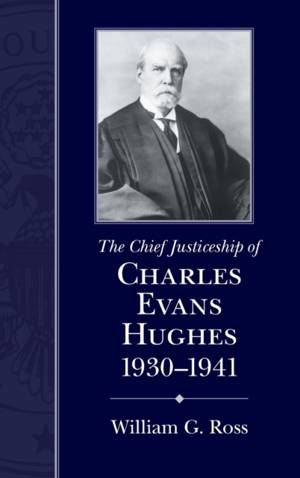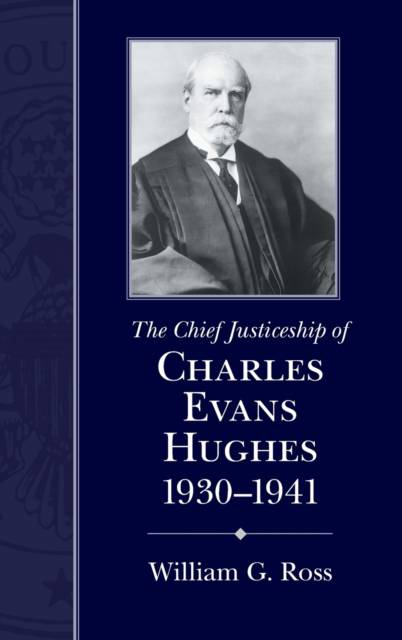
- Retrait gratuit dans votre magasin Club
- 7.000.000 titres dans notre catalogue
- Payer en toute sécurité
- Toujours un magasin près de chez vous
- Retrait gratuit dans votre magasin Club
- 7.000.0000 titres dans notre catalogue
- Payer en toute sécurité
- Toujours un magasin près de chez vous
Description
During the 1930s the U.S. Supreme Court abandoned its longtime function as an arbiter of economic regulation and assumed its modern role as a guardian of personal liberties. William G. Ross analyzes this turbulent period of constitutional transition and the leadership of one of its central participants in The Chief Justiceship of Charles Evans Hughes, 1930-1941. Tapping into a broad array of primary and secondary sources, Ross explores the complex interaction between the court and the political, economic, and cultural forces that transformed the nation during the Great Depression. Written with an appreciation for both the legal and historical contexts, this comprehensive volume explores how the Hughes Court removed constitutional impediments to the development of the administrative state by relaxing restrictions previously invoked to nullify federal and state economic regulatory legislation. Ross maps the expansion of safeguards for freedoms of speech, press, and religion and the extension of rights of criminal defendants and racial minorities. of African Americans helped to lay the legal foundations for the civil rights movement. Throughout his study Ross emphasizes how Chief Justice Hughes' brilliant administrative abilities and political acumen helped to preserve the Court's power and prestige during a period when the body's rulings were viewed as intensely controversial. Ross concludes that on balance the Hughes Court's decisions were more evolutionary than revolutionary but that the court also reflected the influence of the social changes of the era, especially after the appointment of justices who espoused the New Deal values of President Franklin Delano Roosevelt.
Spécifications
Parties prenantes
- Auteur(s) :
- Editeur:
Contenu
- Nombre de pages :
- 304
- Langue:
- Anglais
- Collection :
Caractéristiques
- EAN:
- 9781570036798
- Date de parution :
- 01-05-07
- Format:
- Livre relié
- Format numérique:
- Genaaid
- Dimensions :
- 162 mm x 235 mm
- Poids :
- 557 g

Les avis
Nous publions uniquement les avis qui respectent les conditions requises. Consultez nos conditions pour les avis.






